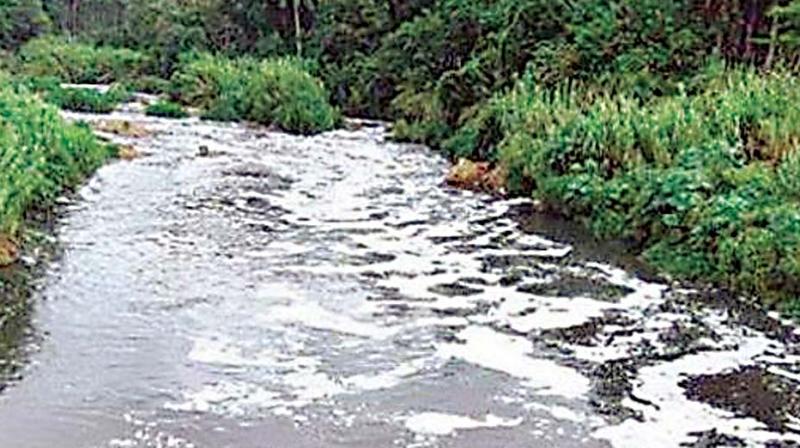No river in Karnataka has potable water: Study
The sample collected from T.G. Halli reservoir for Arkavathi confirms Class D while river Tungabhadra at Davangere confirms to Class E.

Bengaluru: In the river classification data of December 2018 released by the Karnataka State Pollution Control Board (KSPCB), not a single sample collected from 19 rivers confirms to Class A which implies that not single river water is potable without conventional treatment.
The sample collected from T.G. Halli reservoir for Arkavathi confirms Class D while river Tungabhadra at Davangere confirms to Class E. One of the major reasons behind the dismal situation of the revered water bodies is the release of domestic and industrial waste in the Storm Water Drains (SWD).
The water sample of river Hebbala collected from Hebbala Valley near Mandya confirms to Class E. Out of 94 samples, 15 have been classified in Class D and two river samples were found to have come under Class E.
Meanwhile, river Cauvery, at the centre of a political controversy, has been classified under Class C.
Central Pollution Control Board (CPCB), in collaboration with KSPCB, executes National Water Quality Monitoring Programme (NWMP) comprising 63 stations in the state. The monitoring of 19 rivers is done on a monthly basis. The water quality monitoring network is operated under two programmes — Global Environment Monitoring System (GEMS- 5 locations) and Monitoring of Indian National Aquatic Resources System (MINARS- 58 locations).
Water samples are analysed for 28 parameters, which include 9 core parameters, 19 physico-chemical and bacteriological parameters along with field observations. Besides this, eight trace metals and 15 pesticides are analysed once a year to assess the water quality.

